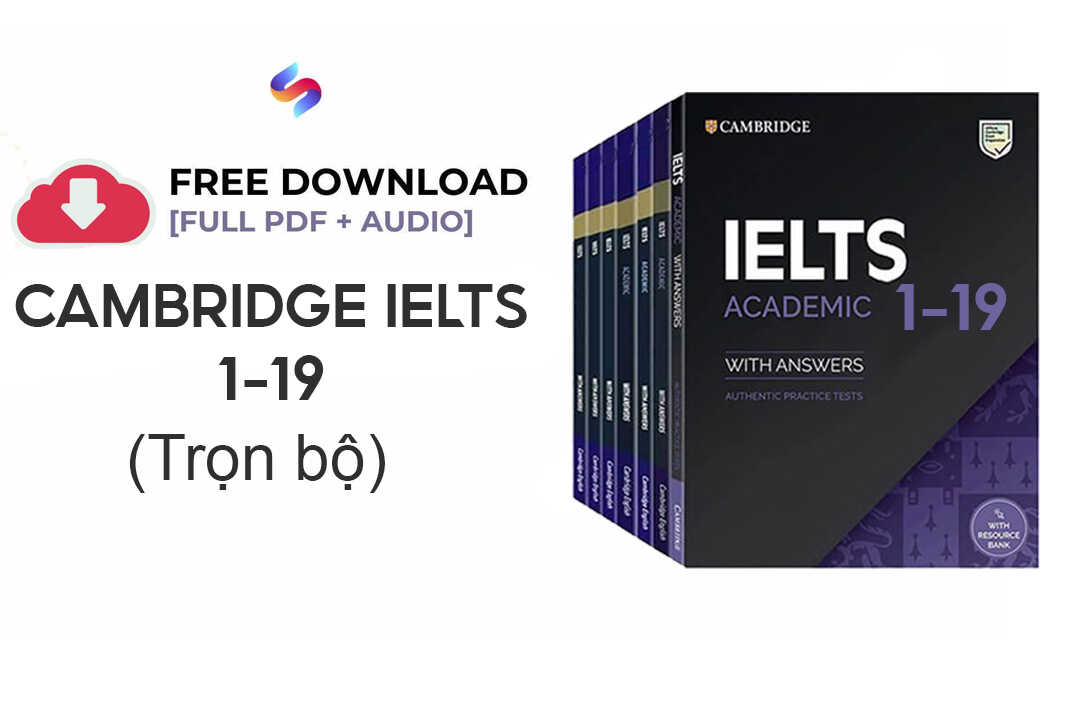Thông tin tổng quan
Tài liệu IELTS
![[Download] Ebook: Giải đề IELTS Writing CAMBRIDGE 19 (PDF)](https://smartcom.vn/blog/wp-content/themes/smartcom/assets/images/date.png) 05/10/2024
05/10/2024[Download] Ebook: Giải đề IELTS Writing CAMBRIDGE 19 (PDF)
Tải miễn phí cuốn giải đề IELTS Writing Cambridge 19 với phân tích, giải thích chi tiết từ chuyên gia IELTS của Smartcom.
IELTS Vocabulary
 09/09/2024
09/09/2024Flashcard là gì? Áp dụng học từ vựng IELTS như nào?
Flashcard là gì? Lợi ích khi ứng dụng flashcard học từ vựng tiếng Anh? Cùng Smartcom English khám phá chi tiết qua bài viết này!
Tài liệu IELTS
 02/08/2024
02/08/2024Tải trọn bộ sách Cambridge IELTS 1-19 (pdf+audio)
Link tải trọn bộ sách IELTS Cabridge 1 – 19 kèm đáp án và hướng dẫn sử dụng chi tiết giúp bạn ôn luyện thi IELTS hiệu quả
Tài liệu IELTS
![[PDF + Audio] Tải Sách IELTS Cambridge 15 (Kèm đáp án)](https://smartcom.vn/blog/wp-content/themes/smartcom/assets/images/date.png) 26/07/2024
26/07/2024[PDF + Audio] Tải Sách IELTS Cambridge 15 (Kèm đáp án)
Cuốn IELTS CAMBRIDGE 15 nằm trong bộ sách Cambridge nổi tiếng với các thí sinh luyện thi IELTS trên toàn thế giới, tải về ôn luyện ngay!

![[Download] Ebook: Giải đề IELTS Writing CAMBRIDGE 19 (PDF)](https://smartcom.vn/blog/wp-content/uploads/2024/10/giai-de-cam-19.jpg)







![[PDF + Audio] Tải Sách IELTS Cambridge 15 (Kèm đáp án)](https://smartcom.vn/blog/wp-content/uploads/2024/07/ielts-cambridge-15_optimized.jpg)
![[PDF + Audio] Tải Sách IELTS Cambridge 19 (Kèm đáp án)](https://smartcom.vn/blog/wp-content/uploads/2024/06/ielts-cambridge-19_optimized.png)
![[PDF + Audio] Tải Sách IELTS Cambridge 17 (Kèm đáp án)](https://smartcom.vn/blog/wp-content/uploads/2024/07/sach-ielts-cambridge-17_optimized.jpg)
